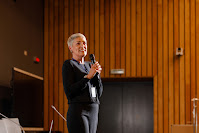Mary Wollstonecraft Shelley was an English novelist best known for her groundbreaking work, Frankenstein. Born in London on August 30, 1797, Shelley was immersed in the literary world from a young age.
Early Life and Influences
Mary Shelley’s parents were Mary Wollstonecraft, an advocate for women's rights, and her father, William Godwin, a political philosopher. Tragically, Wollstonecraft died shortly after Mary's birth, leaving her to be raised by her father.
As Mary grew, her father's home became a hub for intellectuals. This environment, mixed with a vast array of books, fostered her literary talents, and introduced her to the poet Percy Bysshe Shelley, whom she would later marry.
The Birth of Frankenstein
In 1816, Mary traveled to Lake Geneva in Switzerland to spend the summer with Percy, their infant son, her stepsister, Claire Clairmont, Lord Byron, and Doctor John Polidori. At the time, Claire was pregnant by Lord Byron, the groundbreaking poet whose personal affairs had made him one of England’s most controversial celebrities.
After arriving in Lake Geneva, they found the area covered in fog from the Mount Tambora volcano eruption in Indonesia. The eruption killed 100,000 people. A million others starved while many died from a global cholera pandemic unleashed in the aftermath.
Some of Europe’s greatest artists created their darkest works during these dismal days. Mary Shelley was among them.
Since the weather was cold and stormy, the group stayed inside the
Villa Diodati, the stately mansion Bryon had rented. They were left to entertain themselves with ghost stories and horror books. One night, as they sat in candlelit darkness, Lord Byron challenged each person to write a horror story, better than what they had just read.
Polidori accepted Bryon’s challenge and wrote The Vampyre. The short fiction was published in 1819 and is the first to include a blood-sucking hero, possibly modeled on Byron himself.
As the days passed, Mary conceived the idea of Frankenstein. She envisioned a scientist who created life only to be horrified by his creation. This concept was influenced as thunder and lightning echoed outside the villa and conversations turned to whether human corpses could be galvanized or re-animated, after death, a morbid topic of the time.
Legacy and ImpactShelley began writing Frankenstein at age 18. She included the eerie setting of Villa Diodati and the poet’s conversations. The novel was published anonymously in 1818. It wasn't until the second edition, published in 1821, that her name appeared on the title page.
Throughout her life, Mary continued to write novels and short stories. She passed away on February 1, 1851. Of the group only, Mary and Claire lived past age 50. Polidori committed suicide in 1821. Percy Shelley drowned at age 29 in 1822. Byron took the daughter he had with Claire and sent her to a convent. She died there in 1822 at age 5. Byron died in 1824 after contracting a fever. Mary’s infant son lived to age 70.
But the book inspired by that stormy summer and, its life-after-death stories still live on today. Frankenstein is considered one of the first science fiction novels. Its impact is immense, spawning adaptations in film, theater, and other media.




















